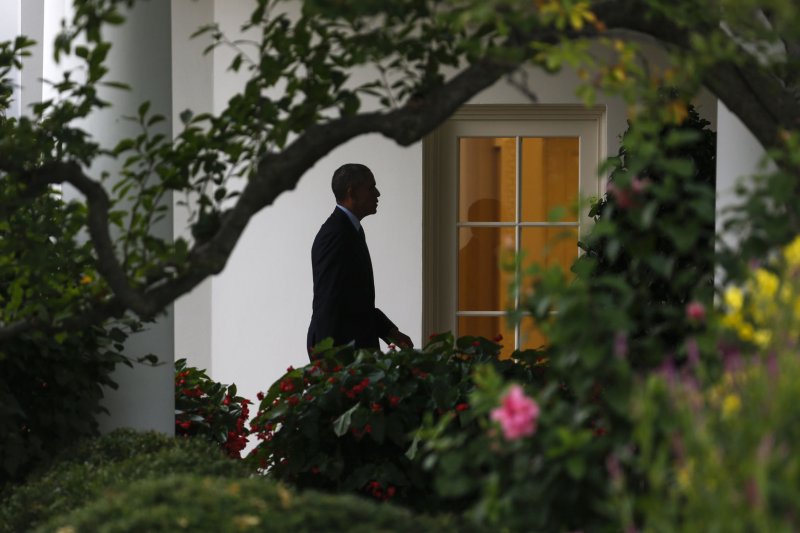A federal appeals court on Thursday ruled that a federal requirement in President Barack Obama's Affordable Care Act that employers provide birth control coverage imposes too great a burden on employers with religious beliefs that oppose the practice. Photo by Aude Guerrucci/UPI |
License Photo
ST. LOUIS, Sept. 17 (UPI) -- Opponents of a federal law that mandates employers provide birth control coverage to employees were handed a victory Thursday in a three-year court battle.
The Eighth U.S. Circuit Court of Appeals in St. Louis ruled Thursday that the Obama administration's law -- which was changed after a 2014 Supreme Court defeat -- doesn't sufficiently accommodate employers whose religious beliefs are at odds with the mandate.
Under the Patient Protection and Affordable Care Act, employers who refuse to comply with the birth control requirement are subject to severe financial penalties.
"We conclude that compelling their participation in the accommodation process by threat of severe monetary penalty is a substantial burden on their exercise of religion," the court said.
The decision means the plaintiffs, four Christian nonprofits, do not need to abide by the law insofar as the birth control mandate is concerned.
The court's decision was applauded Thursday by conservative lawmakers.
"The federal government should never force Americans to participate in activities that violate their fundamental religious beliefs," Rep. Peter Roskam, R-Ill., said in response to the decision. "As the Supreme Court has held on at least four occasions, the Obamacare contraception mandate is wrong to do just that."
The White House, though, said lower courts have agreed that the law provides plenty of accommodation for religious freedom on the issue.
"As all of the other seven courts of appeals to address this issue have held, the contraceptive accommodation process strikes the proper balance between ensuring women have equal access to healthcare and protecting religious beliefs," a White House spokeswoman said.
The issue was first raised in September 2012 when craft store chain Hobby Lobby sued the federal government, saying the law conflicted with the owners' religious opposition to birth control. In June 2014, after several lower court decisions, the U.S. Supreme Court ultimately ruled 5-to-4 in favor of Hobby Lobby -- which led to a change in the law that allowed for certain employers to be exempt from the birth control requirement.
That compromise has satisfied some employers, but not all. Some believe the revised law still makes employers complicit in the providing of birth control coverage.
Thursday's ruling made numerous precedent references to the Hobby Lobby case.
The decision is a departure from previous court rulings in the case, which have backed the federal government and said the law does provide sufficient alternatives for conflicts involving employers' religious beliefs.
Thursday's decision makes it more likely the case will be taken up again by the Supreme Court, which often decides legal matters that are split among lower courts.















